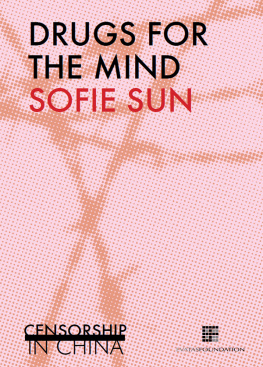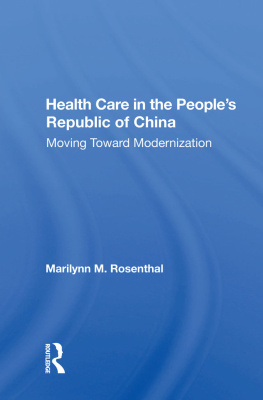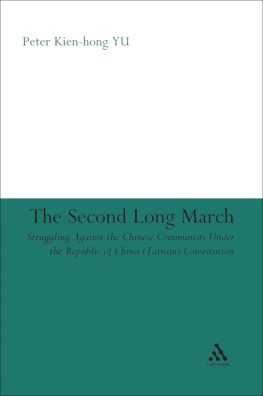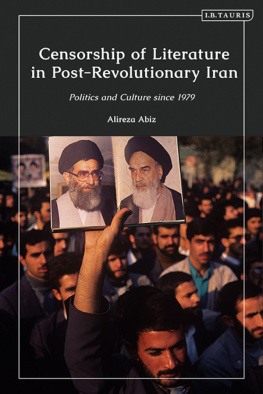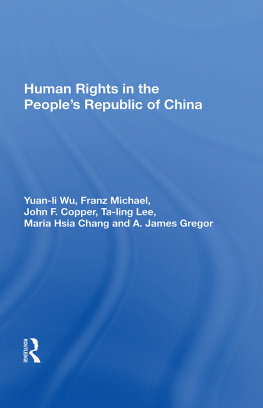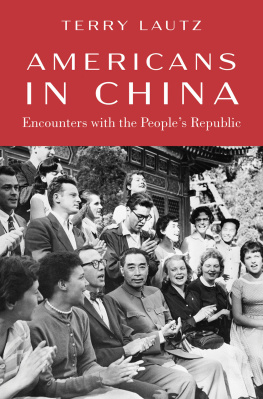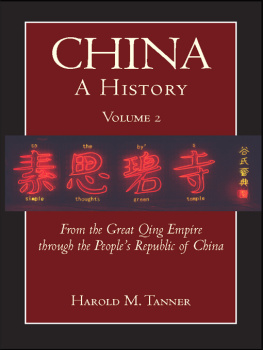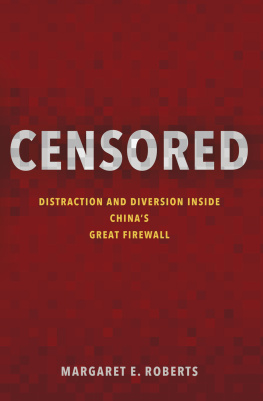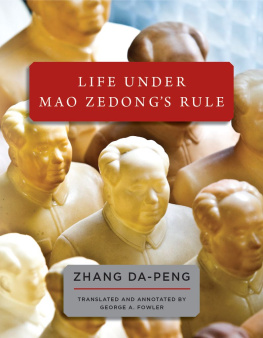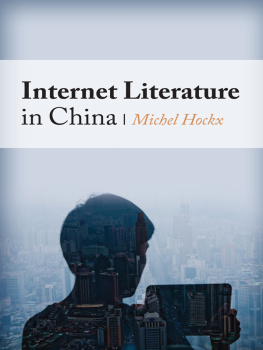
Copyright Sofie Sun
Book design Edwin Smet
ISBN 9789462251632
www.evatasfoundation.com
/ PREFACE
In the summer of 2011, I had my first encounter with the Chinese censorship system. Before that moment, my knowledge of censorship was mostly limited to hearsay. I remember not being able to refrain from thinking that the things I have heard were but exaggerations of reality, the complaintsif not the outright fabricationsof dissidents and disgruntled authors who were out to destroy the reputation of the Communist Party of China. My naive view of censorship in China was thoroughly shattered in the summer of 2011.
At the time, I was accompanying the Dutch poet Ramsy Nasr to visit the Chinese artist Ai Weiwei. Our destination was Caochangdi, Chaoyang Districtthe workshop of Ai Weiwei in Beijing. When we arrived at his doorsteps, the CCTV cameras above the entrance were the first thing that caught my eye. When I turned my head, I noticed the police officer in a Shanghai Volkswagen automobile who was monitoring the workshop. When I returned my attention to the workshop, I finally noticed that there was a plainclothes officer across the street. That experience made me suddenly realised the grim nature of Chinese censorship and its real life consequences.
You might know Ai Weiwei, the artist and political activist, from his frequent appearance in western media. However, many Chinese would not know of the person Ai Weiwei. Whenever I raise his name in front of my friends and classmates in China, I only elicit a blank expression and receive the following response: Who is Ai Weiwei?
I should note that these are urbanites of my same age and who have gone to the same university. Nevertheless, the Chinese state has still managed to mask the existence of one single dissident in spite of the ever growing ubiquity of the Internet in China. This is an astonishing featif we were to actually praise censorship.
Of course, censorship could be part of a bigger problem. For instance, my friends might simply have no interest in following the affairs of Ai Weiwei. It is also a fact that my generation lack political awarenessI also did not have any interest in Chinese politics before I left China in 2007. I was an unquestioning student who only thought of studying. Politics did not matter to me if it did not improve my chances of being accepted into a good university. Nevertheless, news broadcasts would usually either report on state visits from various country heads or focus on the party leaders when they are surveying poor regions in China. However, what would come out of these inspections then? Even after surveying for one year, it is more than likely that poverty would still be endemic to those regions.
Censorship would prevent such negative news from reaching the ears of the public. The only exception would be reports on the punishment of dissidents and extremists. Although these announcements served as warnings to the Chinese public, human rights watchdogs would usually bring such news to international attention in order to pressure the Chinese government into releasing political prisoners. This tactic might have been successful in one or two cases in the past, but the state has decided to stop with these public announcements since the early 2000s.
Shortly after my experience in Beijing, I had the opportunity to meet Mian Mianan independent writer from Chinaand learnt of the hardships in her writing career. Two years later in Amsterdam, I met with Ye Fu, another independent writer. His history and his experiences after the Tiananmen-incident had left me stunned and speechless. These encounters with Ye Fu, Mian Mian and Ai Weiwei had finally caused me to wonder the following about China:
Using cruel methods and pushing people to the brink of desolation just to prevent them from freely expressing themselves; what is wrong with this country?
In 2013, the Eva Tas Foundation invited me to write this book on the subject of the Chinese censorship system. You could probably fill a whole bookstore with books dedicated to the topic of censorship. In order to make this a more manageable projectand for the sake of brevityI had decided to limit my enquiry to literary publications. Literature can be both fiction as well as non-fiction. Its stories can draw readers into a fictional world and at the same time be a discourse on history and reveal its secrets. I was driven by the question of how censorship would operate in the literary world
Facts show that Chinese censors can be enormously cruel in the literary world.
Although China has entered the 21st century, Chinese authorsand their loved onescan still risk publication bans, house arrests, imprisonment, just for criticising the Communist Party of China. I could not believe these facts, nor could I even imagine the severity of the problem until I started interviewing the victims myself. I found myself being left astonished on numerous occasions during my investigation; and many times, I would think that this cannot continue in this manner. Many victims of the regime have remained silent out of fear for further persecution; nevertheless, there are still people who are brave enough to resist even when they are battered and bruised. They are driven by the conviction that the truth will be known by the whole world someday. They will continue to perform their duties as an author until that day comes.
/ INTRODUCTION
In 1957, Lao She, one of Chinas most influential intellectuals, published an article called Freedom and Authors in the magazine Peoples Chinaan English periodical in China. In the article Lao She proposed the following in the article:
Authors should write about the things they find interesting and are knowledgeable on. Whether it is the subject matter, the people, their lives or the themes in their work, authors should have complete freedom in what they want to write. If something is worth writing aboutand it does not lead people astraythen it should be allowed to be published. Allowing authors to compose and to publish is akin to letting hundred flowers bloom.
These words reflected the kind of world Lao She wanted to live in. However, there is often a marked difference between the ideals of people and their actual situation.
This book focuses on the question whether there is freedom of expression in Chinese literature. I try to answer this question through eleven vignettes; each vignette is focused on the writing career of an independent author (Chapter 1), an exiled author (Chapter 2) or a state-employed author (Chapter 3). I focus primarily on authors of book publications.
Unfortunately, I could not include a discussion of magazine publications or online authors due to space constraints.
I explore how censorship has shaped the historical development and literary landscape of contemporary China. Because not everyone has some affinity with the development of contemporary Chinese literature or the history of modern Chinese history, I will first introduce a few basic historical concepts related to the development of the Peoples Republic of China. After that, I will talk about a few principles of the Chinese censorship system.
_ A QUICK LESSON ON CHINESE HISTORY
Chinese literature is not only an art form similar to western literature, but it also performs a social role in society and politics. However, the political value of Chinese literature has often out-weighted its aesthetic appeal in the history of modern China. In 1930, a group of left-wing authors established the Authors Alliance in China. The alliance created a manifesto, inspired by Soviet principles that delineated the social role of authors and literature in society. One of the key points during one of their general assembly specifically stated:
Next page
